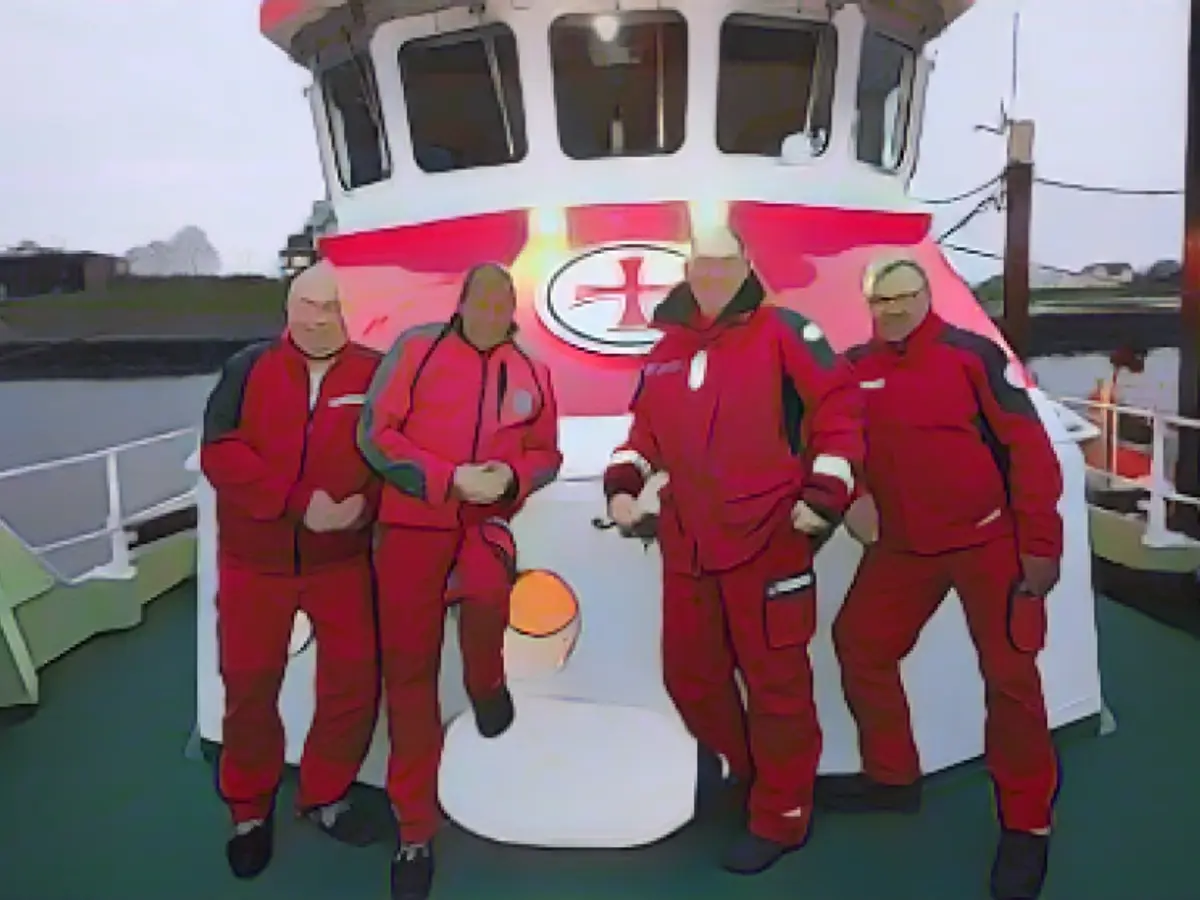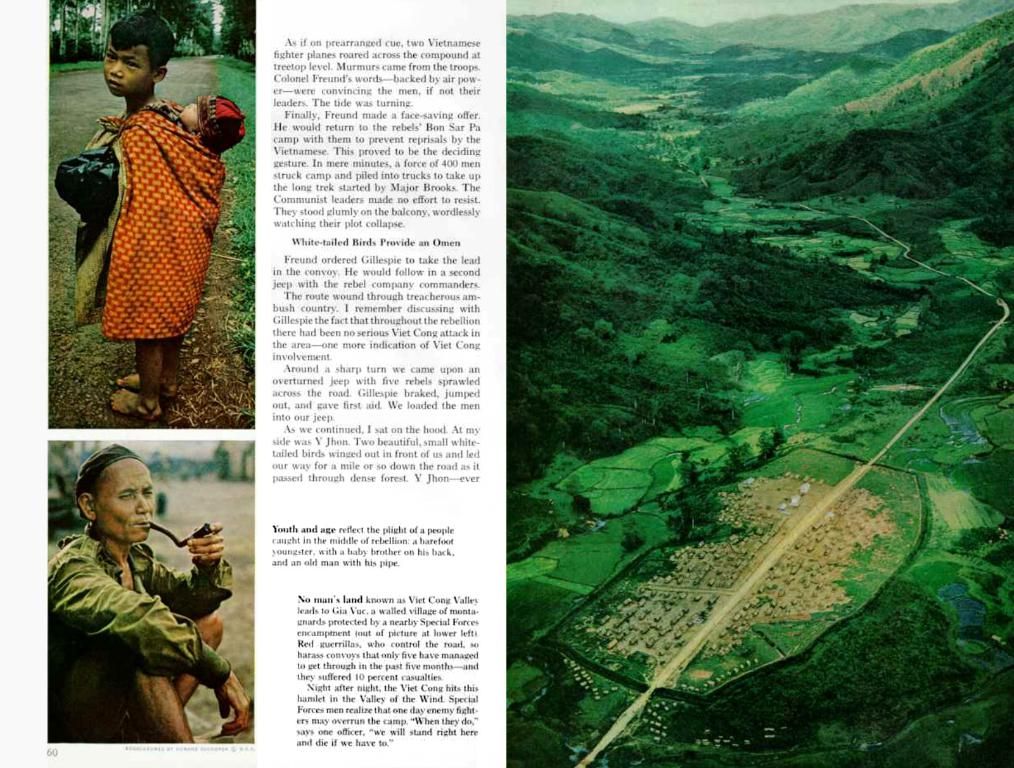In the heart of Cuxhaven, a thrilling tale of resilience and unity unfolded. Three brothers, adventurous and curious, embarked on an amber hunt during low tide in their hometown, unaware of the consequences that awaited them. As the sun dipped below the horizon, the tide began to rise, trapping the brothers in the treacherous mudflats.
Enter the German Maritime Search and Rescue Association, a band of brave and skillful individuals who rely on public donations to carry out their life-saving missions. With the clock ticking, the rescue crew sprang into action.
As Helmer Wolpers, a seasoned member of the team, received the alert at 7:13 pm, he knew every second counted. His team was a finely tuned machine, excellent communication and sharp instincts guiding their movements. The crew illuminated the mudflats with two powerful searchlights, the piercing beams cutting through the inky blackness.
Suddenly, irregular white lights punctured the darkness, a sight that sent shivers down Wolpers' spine. The brothers had alerted the authorities and switched on their headlamps and flashlights, their faint glow visible to the rescuers through the thermal imaging camera. The brothers were huddled together, a chilling sight of camaraderie and fear.
Torsten Brumshagen, a nautical expert, offered his insight on the brothers' perilous situation. "The tide was rising sharply, surging in within minutes," he said. "By the time the water reached their necks, they'd have to swim against the powerful currents. A death sentence for anyone, really."
The daughter boat "Mathias" was launched just minutes later, piloted by Claus Hans. The strong currents made it difficult to navigate, the waters churning and turbulent. "Communication was key," Hans recalled, "We had to shout commands to each other so that navigation could still function."
With their eyes glued to the thermal imaging camera, the team found their quarry at 7:48 pm. The brothers' waterslogged appearance and the waves kissing their chests punctuated the urgency of the situation. Despite their courageous facing of death, the brothers were quick to deny any injuries. Somber yet grateful, one of them even hugged Hans.
As the tide continued to rise, the rescuers hurried to bring the brothers onboard. They lay down side by side, torso flat, and were pulled in one by one. While painful, this method was the safest and quickest. Once onboard, the brothers were checked by the medical team on standby.
After a successful mission, the team returned to base at 8:15 pm, the ambulance ready to tend to any further medical needs. The city of Cuxhaven saw numerous brave acts from its sea rescuers, this being just one of the spectacular operations the team had undertaken in recent memory.
The mission served as a reminder of the crucial role the German Maritime Search and Rescue Association plays in protecting its community. Thanks to generous donations, they can continue their service, acting as beacons of hope in times of despair.








